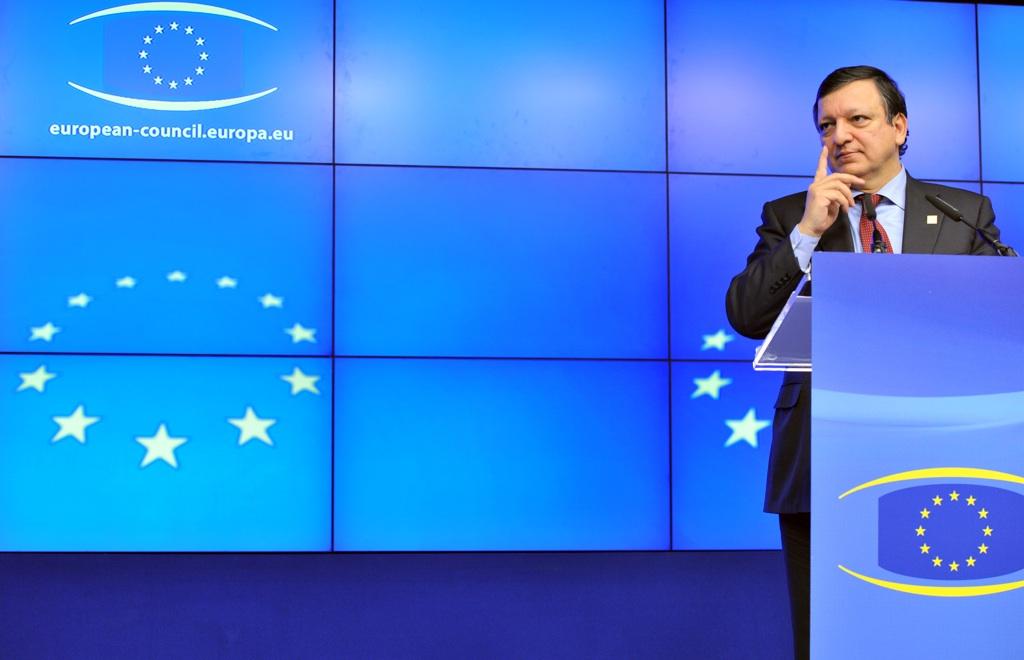EU embraces growth at 17th crisis summit
BRUSSELS, Belgium – Europe's leaders switched their attention away from austerity to growth and job-creation at their summit on Monday – the 17th since the euro zone crisis began – as a looming recession adds to the continent's economic woes.
“Everything starts and ends with growth and jobs,” said Danish Prime Minister Helle Thorning-Schmidt. “You have to have balanced budgets too … but it is possible to have both, these are two sides of the same coin.”
Europe's army of unemployed already tops 23 million and is set to grow as forecasts indicate the euro zone economy will shrink 0.5 percent this year.
Under pressure from protesters on the street and worried markets, European Union leaders are looking to pro-growth policies to balance the raft of cost-cutting measures they've imposed to control the inflated levels of debt which have undermined confidence in several euro zone nations.
“Governments are undertaking strong efforts to correct budgetary imbalances … but further efforts are needed to promote growth and employment,” the leaders said in a statement. “We must do more to get Europe out of the crisis.”
On the austerity side, 25 of the 27 EU leaders approved a German-inspired “fiscal compact” obliging them to enshrine balanced-budget clauses into their national laws. The Czech Republic joined Britain in opting out of the pact.
The summit also formalized agreement on the creation of a permanent 500 billion euro bailout fund – the European Stability Mechanism – which is due to be operational in July to provide emergency back up to troubled euro zone economies.
Read more: Davos takes on the euro zone crisis.
There was no agreement, however, on calls to increase the fund's firepower to 750 billion, a move supported by Italy Spain, the United States and the International Monetary Fund, but opposed by Germany.
The leaders said they would look at the level of funding when they meet again on March 1.
To boost growth and get young people back to work, the summit endorsed a series of targets such as reducing taxes and social security obligations for firms hiring young people; directing funds toward training needed to equip them with saleable skills; and encouraging job seekers to move from country to country to look for work.
European Commission President Jose Manuel Barroso said the EU could frontload the use of 82 billion euros already set aside for developing poorer EU regions, channelling the money into for job-creation projects in some of the nations hardest hit by youth unemployment.
“Europe needs growth in order to protect and create jobs, to safeguard pensions and to provide education and training,” Martin Schultz, the president of the European Parliament told the summit. “Five million young people aged between 15 and 24 are unemployed … a generation of young people is growing up without prospects, and the result is that society may one day be undermined from within.”
Read more: Euro zone crisis – has a corner been turned?
Other commitments included removing remaining barriers to trade among the bloc's 27 members, by setting common rules for online sales, simplifying patent registration, and unifying electricity and gas pipeline networks. These are, however, all long-standing goals, and it remains to be seen if the new statement will speed up their implementation.
Underscoring the growth concerns, leaders arriving for the summit where forced to land at a military airbase outside Brussels because a general strike called by Belgian trade unions in protest at austerity measures had disrupted airport traffic and shut down much of the country.
The stoppage was the latest in series of demonstrations and strikes that have spread from Greece to Portugal, Italy, Spain and other EU nations in recent weeks, demanding that governments alleviate the pain of austerity with some economic stimulation.
Rating agencies and other market players have also warned that the euro zone has little chance of getting out of the crisis without economic growth.
Despite some relatively optimistic comments over the past few days from the likes of French President Nicolas Sarkozy suggesting that Europe may be over the worst of the crisis, and despite another positive sign from the market Monday when Italy was able to sell more bonds at a lower interest rate, continued pressure on Greece and Portugal underscored the dangers that remain in the euro zone.
Portugal's borrowing costs broke new records, and there is still no breakthrough between Greece and its creditors to write off a chunk of its debt in order to avoid a chaotic bankruptcy – although Sarkozy said he was hopeful of a deal “in the next few days.”
Greece reacted angrily to a Germany suggestion that the European Commission takes over direct running of the country's budget, and the measure gained little support from other leaders at the summit.
